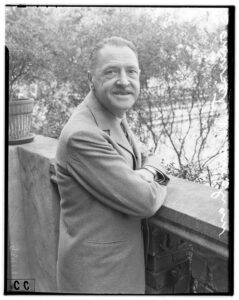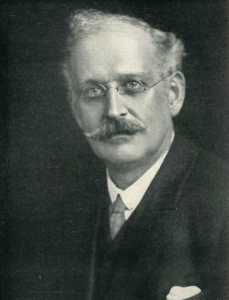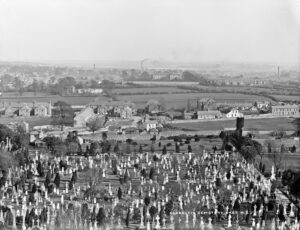

Sarah Flower Adams was a writer, radical, and major influence on the religious thinking of William Johnson Fox at South Place Chapel (now Conway Hall). Her most famous work, the hymn Nearer, my god, to thee, was in fact an expression of growing religious doubt, prompted in part by discussions with the poet Robert Browning.
Sarah Flower was born on 22 February 1805 in Essex, the younger daughter of radical Unitarian printer Benjamin Flower and his wife Eliza, a teacher. Both parents shared progressive political sympathies, and had met while Benjamin Flower was imprisoned in Newgate for libelling a bishop. Her older sister, Eliza, was a talented musician and composer, and the two shared a lifelong bond. When their mother died in 1810, Benjamin Flower raised and educated his daughters.
The Flowers moved to London in 1820, and were part of a vibrant and liberal community which included Harriet Martineau, Harriet Taylor, and John Stuart Mill. William Johnson Fox, Unitarian minister at South Place Chapel was the group’s linchpin, and became the Flower sisters’ guardian when their father died in 1829. Fox also edited the Monthly Repository, a formerly Unitarian periodical which became increasingly secular and reformist under his control. To this, Sarah contributed under the pseudonym ‘S. Y.’.
Sarah met engineer William Bridges Adams at the house of her friend, the feminist and freethinker Harriet Taylor, and the couple married in 1834. After a brief career as an actor, cut short by ill health, Sarah devoted herself to writing – both literary and political. Her 1841 poem Vivia perpetua centred on women’s freedoms and liberty of thought, and she wrote a number of political poems, showing support for the working classes and an advocacy of all human rights. It was the hymn Nearer, my god, to thee, which most secured her reputation as a writer in perpetuity, but its adoption by Christian denominations the world over belies its origins in personal religious crisis.
In 1827, Sarah Flower had written to friend and guardian William Johnson Fox, confessing that her mind had been ‘wandering a long time’.
It was in answering Robert Browning that my mind refused to bring forward argument, turned recreant, and sided with the enemy… The consciousness that I have not examined as far as in me lies, weighs heavily upon me, and to you I now look to direct my inquiries.
Like many raised in an environment of strict religious belief, Sarah Flower felt guilt and fear as her own scepticism grew stronger. She sought advice from Fox as to books to read which might strengthen her faith, and composed Nearer, my god, to thee, in the words of Moncure Conway, ‘out of such pangs’. Conway notes that this hymn:
…which Christians throughout the world are singing in different tunes… is really a hymn of their pilgrimage from the old faith to the new.
Conway credits Sarah Flower’s openness, in part, with influencing William Johnson Fox in his increasingly liberal and inclusive stewardship of South Place, which in turn gave way to the humanist outlook that followed. Both Sarah as writer, and Eliza as composer, significantly influenced the atmosphere and legacy of their generation at South Place, informing the values of enquiry, tolerance, and creativity which enabled its evolution towards an ethical – and then a humanist – society.
Sarah Flower Adams died on 14 August 1848 and was buried in the Flower family plot in Harlow, Essex.
The Flower sisters, through their closeness and collaboration with William Johnson Fox, and their active contributions to the life of South Place, did much to enable its progression towards a humanist society. Sarah’s example in particular, evidenced by the letter above, was one which demonstrated the acutely felt difficulties of religious doubt, as well as the role of friendship, openness, and artistic expression in providing an atmosphere which enabled and examined these.

I remain an agnostic, and the practical outcome of agnosticism is that you act as though God did not exist. […]

University College London was founded in 1826 as the University of London; the city’s first university, and a consciously secular […]

Charles Albert Watts was a lifelong promoter of rationalism, and the founder in 1885 of Watts’s Literary Guide, still published […]

Glasnevin Cemetery is a nondenominational cemetery in Ireland, first opened in 1832. The brainchild of Catholic rights leader Daniel O’Connell, […]